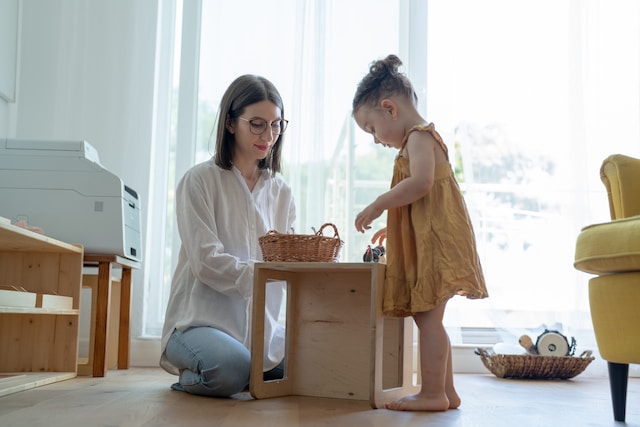
Therapy for learning disabilities can address a wide range of emotional, psychological, and practical challenges associated with these conditions. Therapy can help individuals and their families navigate these challenges more effectively and improve their overall well-being and quality of life. We celebrate your experience with neurodiversity, honor the challenges that it can create and recognize the strengths that you have. We want to help.
Browse our Therapist Directory
What Is a Learning Disability?
A learning disability is a neurodevelopmental disorder that affects a person’s ability to acquire, process, retain, or use information effectively. Individuals with learning disabilities may experience difficulties in one or more areas of academic, cognitive, or skill development despite having average or above-average intelligence in other areas. These difficulties are typically persistent and may affect various aspects of life, including education, work, and daily functioning.

Key characteristics of learning disabilities include:
- Specificity: Learning disabilities are specific to certain areas of learning or skills, such as reading, writing, math, language, or executive functioning. They do not necessarily affect all aspects of a person’s abilities.
- Neurological Basis: Learning disabilities have a neurological basis, often related to differences in brain structure or functioning. These differences can impact how the brain processes and interprets information.
- Chronic and Lifelong: Learning disabilities are typically lifelong conditions, although their impact can vary depending on the individual and the level of support and intervention they receive.
- Impact on Learning: Learning disabilities can interfere with a person’s ability to learn and perform at the expected level for their age and intellectual ability. This impact is often most noticeable in academic settings.
- Variability: Learning disabilities can vary widely from person to person. Two individuals with the same learning disability may experience different challenges and strengths.
Learning Disabilities and Neurodiversity
Neurodiversity is a broader concept that recognizes and celebrates the natural variation in neurological traits and differences among individuals. It emphasizes that neurological differences, including but not limited to learning disabilities, ADHD, autism spectrum disorders, and others, are a natural part of human diversity.
Coping with learning disabilities primarily focuses on handling the challenges or deficits in learning and skill acquisition within specific areas. These challenges are often seen in educational or academic contexts. In contrast, the neurodiversity perspective encourages acceptance and inclusion of individuals with diverse neurological traits in all aspects of society. Instead of focusing solely on “fixing” or “curing” neurological differences, it promotes the idea that society should accommodate and celebrate these differences, recognizing the unique perspectives and abilities they can offer.
A note on language:
Each individual has preferences for how they refer to their experiences … you might emphasize that you have a learning disability, that you’re a person with a learning disabilities … you might not resonate with common terms like “challenges” or “deficits” and prefer a more strengths-based approach with language. You can speak with your therapist about how you identify and what language you want used in your sessions. Moreover, your therapist can assist you in defining this for yourself and empower you to have conversations about this with others.
Types of Learning Disabilities
Several common learning disabilities for which people may seek therapy include:
Dyslexia
Dyslexia affects reading and language processing. Individuals with dyslexia may have difficulty with reading, spelling, and writing. Therapy can help with reading comprehension, phonological awareness, and strategies to improve reading and writing skills.
Attention-Deficit/Hyperactivity Disorder (ADHD)
While not exclusively a learning disability, ADHD often co-occurs with learning disabilities and can impact a person’s ability to focus, organize tasks, and manage time. Therapy, often in the form of behavioral therapy or coaching, can help individuals with ADHD develop strategies to improve their executive functioning skills.
Dyscalculia
Dyscalculia affects mathematical abilities. Individuals with dyscalculia may have trouble understanding mathematical concepts, performing calculations, and solving math-related problems. Therapy can help with building math skills, number sense, and mathematical reasoning.
Auditory Processing Disorder (APD)
APD affects the ability to process and make sense of auditory information. People with APD may have difficulty understanding spoken language, following instructions, and discriminating between similar sounds. Therapy may involve auditory training exercises to improve listening skills.
Nonverbal Learning Disorder (NVLD)
NVLD affects nonverbal communication, spatial reasoning, and social skills. Therapy can help individuals with NVLD develop social and communication skills, improve their understanding of nonverbal cues, and enhance their problem-solving abilities.
Language Processing Disorder
Language processing disorders can impact a person’s ability to understand and use language effectively. Therapy can target specific language skills, such as comprehension, expressive language, and pragmatic language (social communication).
Executive Functioning Deficits
Executive functioning deficits can occur in various learning disabilities and ADHD. Therapy can focus on improving executive functioning skills, such as organization, planning, time management, and self-regulation.
Visual Processing Disorder
Visual processing disorders affect how the brain interprets visual information. Therapy may involve exercises to improve visual processing skills, which can help with reading, writing, and other visual tasks.
Working Memory Deficits
Working memory deficits can impact a person’s ability to hold and manipulate information in the short term. Therapy can target strategies to improve working memory and cognitive processing.
Processing Speed Deficits
Slow processing speed can affect how quickly a person can complete tasks, particularly in academic settings. Therapy may focus on strategies to increase processing speed and efficiency.
Benefits of Therapy for Learning Disabilities
People may seek therapy for the topic of learning disabilities for several reasons, as these conditions can have a significant impact on a person’s emotional well-being and overall quality of life. Here are some common reasons / benefits why individuals with learning disabilities or their parents/caregivers might consider therapy:
Emotional and Psychological Support
Learning disabilities can lead to feelings of frustration, low self-esteem, anxiety, depression, and even shame. Therapy can provide a safe and supportive environment for individuals to discuss and manage these emotional challenges.
Coping Strategies
Therapy can help individuals develop effective coping strategies to manage the challenges associated with learning disabilities. Therapists can teach techniques for managing stress, frustration, and self-doubt.
Self-Acceptance and Self-Esteem
Many individuals with learning disabilities may struggle with self-acceptance and self-esteem issues due to the academic difficulties they face. Therapy can help individuals learn to accept themselves as they are and build their self-esteem.
Family and Relationship Issues
Learning disabilities can affect family dynamics and relationships. Therapy can help family members understand the challenges associated with learning disabilities and improve communication and support within the family.
Academic and Career Guidance
Therapists can provide guidance on educational and career options that are well-suited to an individual’s strengths and interests, taking into account their learning disability.
Advocacy and Self-Advocacy
Therapy can empower individuals with learning disabilities to become effective self-advocates. They can learn to communicate their needs and accommodations effectively in academic and workplace settings.
Stress Management
Managing the daily challenges of living with a learning disability can be stressful. Therapy can provide tools and techniques for managing stress and maintaining mental health.
Goal Setting and Planning
Therapy can help individuals with learning disabilities set realistic goals and develop strategies to achieve them, whether in education, career, or personal life.
Skill Development
Some individuals with learning disabilities may benefit from skill-building exercises in therapy to improve specific cognitive or executive functioning skills, such as organization, time management, and problem-solving.
Parent/Caregiver Support
Parents and caregivers of individuals with learning disabilities may also seek therapy to better understand and support their loved ones. It can provide strategies for effective parenting, communication, and advocacy on behalf of their children.
Who Goes To Therapy When A Child Has Learning Disabilities?
When a child has a learning disability, it’s common for various individuals to be involved in the therapeutic process to provide support and address the child’s needs effectively. The specific individuals who may participate in therapy or related services can include:
The Child
The child with the learning disability is typically the primary focus of therapy. They receive individualized interventions and support tailored to their specific learning challenges and needs.
Parents or Caregivers
Parents or caregivers often play a crucial role in the therapy process. They may attend therapy sessions with their child to learn strategies and techniques that can be used at home to reinforce the skills and strategies taught in therapy. Parental involvement can enhance the child’s progress and well-being.
Siblings
Siblings, in particular, may benefit from education and support to understand their sibling’s needs and promote positive relationships. Furthermore, they may benefit from therapy to address their own needs as oftentimes it can feel like attention goes primarily to the sibling with the learning disability. Siblings may, therefore, attend their own individual therapy sessions and/or family therapy.
The Rest of the Team
While therapy sessions are typically for the child/family, there are times when your therapist might coordinate with other members of your family’s support team. Teachers and occupational therapists are two examples of team members who might be brought in for certain aspects of therapy.
Types of Therapy for Learning Disabilities
You can work with your therapist to determine which type of therapy is right for you and your family. Some examples of types of therapy for learning disabilities include:
Cognitive-Behavioral Therapy (CBT)
CBT can help children and adolescents with learning disabilities develop strategies to manage negative emotions, reduce anxiety, and build resilience. CBT can also address negative thought patterns related to their abilities.
Mindfulness-Based Therapy
Mindfulness and relaxation exercises can help children and parents manage stress and anxiety related to learning disabilities.
Parent-Child Interaction Therapy (PCIT)
PCIT is designed to improve the parent-child relationship and address behavioral issues in children. It can be valuable for parents of children with learning disabilities to improve communication and support.
Family Systems Therapy
This approach examines family dynamics and interactions. It can be beneficial in understanding how family dynamics may be affecting the child’s experience with a learning disability and facilitating positive changes within the family system.
Play Therapy
Play therapy is often used with children to help them express their thoughts and feelings through play and creative activities. It can be particularly effective for younger children who may have difficulty verbalizing their emotions or concerns.
Art Therapy
Art therapy involves the use of artistic materials and creative expression to explore and communicate emotions and experiences. It can be a valuable tool for children and adolescents to process their feelings related to learning disabilities.
Narrative Therapy
Narrative therapy helps individuals reframe their experiences and stories about themselves. It can be used to build a more positive and empowering narrative around an individual’s learning disabilities.
Next Steps
Are you ready to find a therapist who can assist you in navigating issues around learning disabilities? Search our therapist directory today to find the one who is right for you. Or call us for more information.
Browse our Therapist Directory









